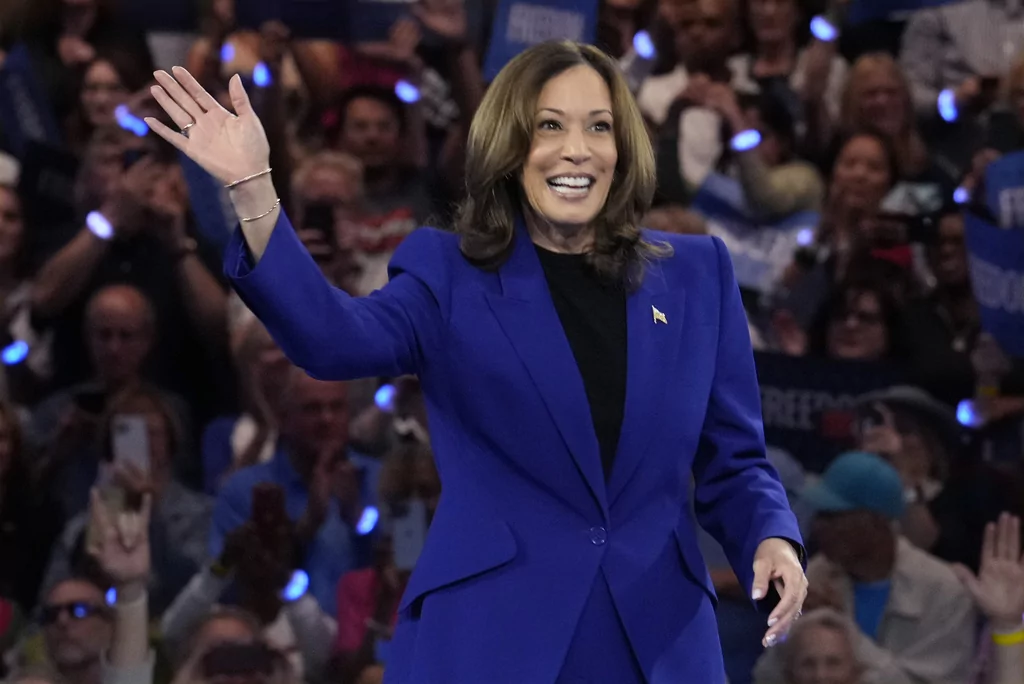

Vice President Kamala Harris has begun to outline the legislation she would sign if elected president — but Democrats have their sights equally set on one of the biggest obstacles to passing those bills: the Senate filibuster.
At the Democratic National Convention on Thursday night, Harris listed several pieces of legislation that she would support if passed in Congress. She mentioned Senate Democrats’ attempt to codify Roe v. Wade into law, a failed immigration deal, plus two voting rights bills.
Her speech reflects a continuation of the agenda Joe Biden pursued in his four years as president. But Democrats will have to do more than win a trifecta in Washington, D.C., if they hope to deliver on Harris’s promises.
They will need to overcome the filibuster, a legislative hurdle that two retiring Democrats-turned-independents did not allow their party to eliminate even though it had a majority in the Senate.
The Senate’s 60-vote requirement to pass nearly all legislation, rather than a simple majority, is a threshold that used to be higher but was reduced to its current level in 1975. It stands as one of the most effective tools of the minority party.
In the most plausible winning scenario for Democrats, they come away from November with a 50-50 majority. The current makeup is 51-49.
Democrats are poised to lose West Virginia with the retirement of Sen. Joe Manchin (I-WV), one of two former Democrats to support the filibuster, while the party controls another eight competitive seats up for reelection. The path to maintaining their majority is uphill, with Democrats needing to run the table on the battleground races.
But the retirements of Manchin and Sen. Kyrsten Sinema (I-AZ), the other Democratic obstacle to the filibuster’s elimination, mean the caucus has its best chance yet to remove the Senate rule if they do win.
Rep. Ruben Gallego (D-AZ), the Democrat running to succeed Sinema in Arizona, for example, supports filibuster “reform.”
The degree to which other Democrats would be willing to alter the rule stands to be seen.
Senate Majority Leader Chuck Schumer (D-NY) expressed optimism at the DNC that changes would be made, telling reporters he would seek exceptions to the filibuster for abortion access and voting rights. But there may be other Democratic senators uncomfortable with the so-called nuclear option.
“This is vital to democracy,” Senate Majority Leader Chuck Schumer (D-NY) told the Washington Post. “This is not just another extraneous issue. This is the wellspring of it all.”
It wouldn’t be the first time either party modified the filibuster, but it would be for legislative purposes.
With a simple majority, then-Senate Majority Leader Mitch McConnell (R-KY) lowered the threshold for Supreme Court nominations in 2017, allowing Republicans to confirm Justice Neil Gorsuch. The move came in the years after then-Senate Majority Leader Harry Reid (D-NV) lowered the threshold for all lower court and executive branch nominees.
Republicans have honed in on Schumer’s bullish predictions to warn that Democrats are a threat to a core institutional feature of the Senate that forces bipartisanship.
McConnell’s office assailed filibuster changes as an “infamous power grab that would severely undermine our constitutional order.”
Republican candidates in battleground Senate races are also taking note, highlighting the issue on the campaign trail against their Democratic opponents.
In Pennsylvania, Republican Dave McCormick said Sen. Bob Casey (D-PA) and Harris want to get rid of the filibuster “to impose their dangerously liberal agenda on Pennsylvania and America.”
In Arizona, Republican Kari Lake, running against Gallego, said she “always admired the courage [Sinema] showed in putting country over party to preserve the filibuster.”
Meanwhile, Democrats are leveling similar warnings about former President Donald Trump, though the preservation of the filibuster is not part of their electoral argument.
CLICK HERE TO READ MORE FROM THE WASHINGTON EXAMINER
“He and his allies would limit access to birth control, ban medication abortion, and enact a nationwide abortion ban, with or without Congress,” Harris said of Trump in her DNC speech. The former president has denied the Democrats’ claims.
Republicans have eyed another legislative maneuver to enact their agenda, using what is known as reconciliation to pass a series of budget-related provisions, likely centered on taxes, with only 51 votes. It’s a mechanism Democrats used in 2022 to pass the Inflation Reduction Act.






